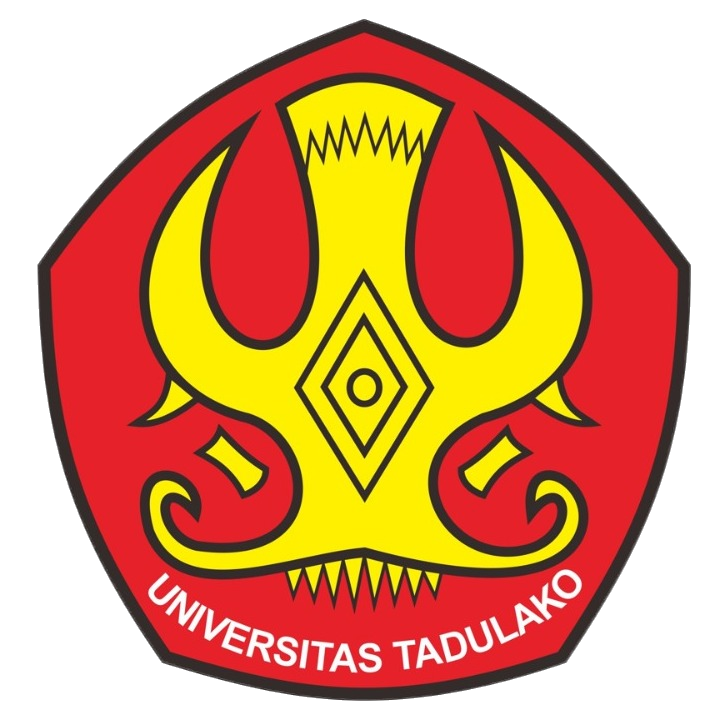THE ROLE OF VILLAGE GOVERNMENT ON THE IMPACT OF STEAM POWER PLANT CONSTRUCTION IN IMPROVING COMMUNITY WELFARE IN LERO TATARI VILLAGE, SINDUE DISTRICT
Kata Kunci:
Pemerintah, Peran Pemerintah, Pemberdayaan, KesejahteraanAbstrak
The aim of this research is to find out the role of the Village Government in the Impact of the Construction of a Steam Power Plant in Improving the Welfare of the Lero Tatari Village Community. This research uses a qualitative descriptive research type, while the research base used is descriptive, namely an approach to certain phenomena, events, problems or circumstances that are the object of investigation; the results of the findings are in the form of meaningful sentence descriptions. The data used in this research uses primary data and secondary data. Data collection techniques were carried out by means of observation, interviews and documentation. The data analysis technique uses the Milles Saldana 2014 analysis technique. Meanwhile, determining informants uses Purposive. The theory used according to Muhadan Labolo in Ryaas Rasyid 2010 is the role of the government as a facilitator which means creating conducive conditions for development implementers to bridge various community interests, the role as a regulator. Dimensions that are measured by the agreement that the Lero Tatari village government has built with the parties implementing the construction of a steam power plant project, Dynamisator. The government's role as a dynamist means providing encouragement or support through appeals to the village community. Catalyst measures the government's role as a catalyst, namely the government's role in responding to various community aspirations or complaints related to the construction of a steam power plant. Based on the research results, it is stated that the role of the Village Government in development in improving the welfare of the community is not yet optimal, seen from the role of facilitator or as an extension of the community in taking advantage of job opportunities in the construction of the power plant carried out by Wika. a small part of the community of 1,696 people, the total population consisting of children and the elderly is 845 people, while the productive people are 851 people, there are 57 people who have worked at the hydropower plant, while the number of men who have not worked or are unemployed is around 794 people. lost his job even though we all know that there has been communication established by PT Wika and the Village Government. Meanwhile, the role of the Village Government as a regulator is not yet optimal due to the lack of agreement in the form of regulations which are the basis for the community to be able to take advantage of job opportunities from the construction of the PLTU by Wika. Meanwhile, from the aspect of the government's role as a dynamist, it is not yet optimal, where there is no government movement to see that people have lost their jobs due to the impact of the construction of the power plant. The government's role as a catalyst is also not optimal, where it is difficult for the community to express their aspirations or complaints and BPD is not functioning as a connector for community aspirations.
Referensi
Afifudin 2010. Pengantar Admnistras Pembangunan. Bandung: CV Alfabeta.
Afifuddin dan Saebandi Beni Ahma, 2012. Metode Penelitian Kualitatif. Bandung. Pustaka Setia.
Adisasmita, Rahardjo. 2006, Membangun Desa Partisipatif. Yogyakarta, Graha Ilmu
Amira. 2012, Sosiologi Pengantar, Jakarta:. Rajawali Pers.
Bernand, Raho. 2007. Teori Sosiology Modern : Prestasi Jakarta
Harun, Rochajat&Ardianto Elvinaro. 2011. Komunikasi Pembangunan dan Perubahan Sosial. Jakarta: Rajawali Pers.
Leksono, S 2013 Penelitian Kualitatif Ilmu Ekonomi. Dari metodologi ke metodologi. Edisi .1 cetakan satu Jakarta : Rajawali Pers Grafindo Persada
Muhadan Labolo, 2006. Memahami Ilmu Pemerintahan, Jakarta: Rianeka Cipta.
Nasution, Zulkarnain. 2007. Komunikasi Pembangunan (Pengenalan Teori dan Penerapanya) Jakarta: PT. Raja Grafindo.
Pahmi, 2010. Perspektif Baru Antropologi Pedesaan. Jakarta: Gunung Persada Press.
Ryaas Rasyid, 2010. Makna Pemerintahan, Tinjauan Dari Segi Etika dan Kepemimpinan, PT Mutiara Sumber Widya, Jakarta.
Rivai, Veithzal.2004. Kepemimpinan Jakarta : PT. Raja Grafindo Persada..
Syafiee Inu Kencana, 2013. Kepemimpinan Pemerintahan Indonesia. Bandung Rafika Aditama.
Sugiyono, 2011. Memahami Penelitian Kualitatif. R dan D Bandung : Alfabeta Dunia Ketiga, Erlangga, Jakarta.
Sugiyono, 2011. Memahami Penelitian Kualitatif. R dan D Bandung : Alfabet
Sugiyono, 2014. Metode Penelitian Kuantitatif, Kualitatif R dan D. Bandung. Alfabeta, Cet. 20.
Yusuf, A. M. (t.t.-b) 2014. Metode Penelitian: Kuantitatif, Kualitatif & Penelitian Gabungan. Prenadamedia Group.




